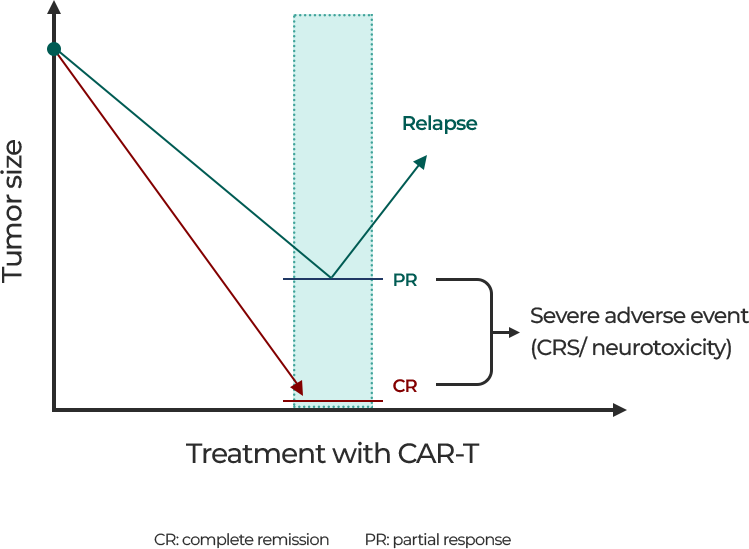SCIENCE & TECHNOLOGY
ABBIO’S CORE TECHNOLOGIES : (ADVANCED) sCAR-T TECH
ABBIO’S CORE TECHNOLOGIES : (ADVANCED) sCAR-T TECH
The evolution of anticancer drugs has progressed from cytotoxic chemotherapy agents to targeted therapies such as mAbs, and more recently, to adoptive cell therapies. Unlike cytotoxic agents, which lack specificity, or targeted therapies that rely on the patient’s immune system, adoptive cell therapies (CAR-T) offer a more autonomous approach to eradicating cancer cells while maintaining precise target specificity.
Relapse rate
≥40%
CRS (Grade 3-5)
~20%
ICANS (Grade 3-4)
~35%
Difficult to treat
CRS, Cytokine Release Syndrome; ICANS, Immune effector Cell-Associated Neurotoxicity Syndrome
Antigen downregulation
Immunosuppressive TME
Antigen heterogeneity
Immunosuppressive TME
Low accessibility
On-target, off-tumor toxicity
Excessive secretion of cytokines
T cell exhaustion (expression of inhibitory receptor)
